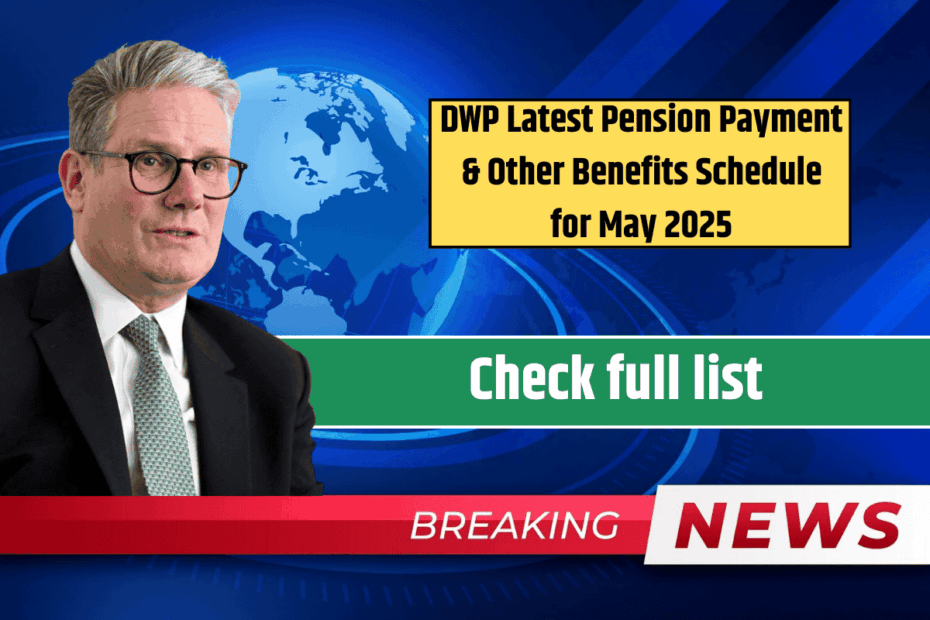As the new financial year begins, millions across the UK are seeing higher incomes—thanks to rises in wages, pensions, and benefits. However, at the same time, everyday costs like energy, council tax, and water bills have also gone up. So, while many are earning more, many households may still feel the pressure from rising expenses.
Here’s a full update on what’s changing in benefits, pensions, and support options this May—and how to make sure you’re getting everything you’re entitled to.
Income Boosts for Many UK Residents
From April, a number of financial changes have come into effect:
- Minimum wage increased by 6.7%, meaning a £1,400 annual pay rise for many
- State pension went up by 4.1%, in line with the triple lock system
- All DWP-managed benefits increased by 1.7%
These boosts aim to ease pressure for both workers and non-working individuals, but they’re not enough to cover the recent rise in household bills.
Household Bills Are Rising
In contrast to these income increases, many household bills are now more expensive:
- Energy bills rose as Ofgem raised the price cap to £1,849
- Water bills and council tax also increased
- The average family could be paying £9.25 more a month just for energy
Welfare Cuts on the Way
The Labour government’s recent welfare announcements include £5 million in cuts, affecting:
- Universal Credit – Changes in allowance rates from 2026
- PIP (Personal Independence Payment) – Tougher rules to qualify
For Universal Credit:
- The standard allowance will rise by £7 per week in April 2026
- But the health element will be frozen and later reduced for new claimants
If you think you’re eligible, apply now to lock in the higher support rates.
UK Poverty Levels Still High
A recent Joseph Rowntree Foundation report shows that 14.3 million people—or 21% of the population—lived in poverty in 2022/23. This includes:
- 8.1 million working-age adults
- 4.3 million children
- 1.9 million pensioners
May 2025 Benefit Payment Dates
Most benefit payments will follow the usual schedule in May, except for a few changes due to Bank Holidays:
- Payments due on 5 May will be paid on 2 May
- Payments due on 26 May will be paid on 23 May
This includes payments for:
- Universal Credit
- State pension
- Child benefit
- Disability Living Allowance
- PIP
- Attendance Allowance
- Carer’s Allowance
- ESA
- Income Support
- Jobseeker’s Allowance
Pension Payment Dates in May
Pensions are paid based on the last two digits of your NI number:
- 00–19: Monday
- 20–39: Tuesday
- 40–59: Wednesday
- 60–79: Thursday
- 80–99: Friday
Other Financial Support You Can Claim
Budgeting Advance Loans
For those on Universal Credit, interest-free loans are available:
- £348 (single)
- £464 (couple)
- £812 (with children)
From April 2025, deductions will be capped at 15% (currently 25%) to make repayment easier.
Charitable Grants
Support is available for:
- Carers
- Disabled individuals
- Bereaved families
- Students
Use Turn2us‘ free tool to find suitable grants.
Help with Energy Bills
Several providers offer help, including:
- Scottish Power
- EDF
- E.ON
- Octopus
British Gas offers grants up to £2,000, even if you’re not their customer.
Council Tax Support
You may qualify for a 100% discount or discretionary help. Visit your local council’s website for details.
Free Childcare
Parents now get:
- 30 hours free for 3–4-year-olds
- 15 hours free for 2-year-olds
- From Sept 2025: 30 hours for all under-fives
Also apply for Tax-Free Childcare for extra savings.
Mental Health Support
You’re not alone—help is available:
- Samaritans: Call 116 123 or visit samaritans.org
- Mind: Call 0300 102 1234 or 0300 123 3393
- Scope: Join forums for disability support
- NHS: Access mental health help online via NHS England
While many UK residents are enjoying increased income through pensions, benefits, and wages, the rising cost of living is eating into those gains. With upcoming welfare changes, especially for Universal Credit and PIP, it’s more important than ever to check your eligibility, plan ahead, and claim any support available to you.
If you’re struggling, don’t hesitate to look into budgeting loans, grants, and childcare support. Even a small help can make a big difference during these challenging times.
SOURCE
FAQs
Did benefits go up in April 2025?
Yes, all DWP-managed benefits rose by 1.7%, and the state pension increased by 4.1% due to the triple lock.
When will my benefit be paid in May 2025?
If your payment is due on 5 May or 26 May (Bank Holidays), you will likely be paid earlier on 2 May or 23 May.
What’s the new minimum wage from April 2025?
The minimum wage increased by 6.7%, giving many workers an annual rise of around £1,400.
What support is available for energy bills?
British Gas offers grants of up to £2,000, and most major suppliers have hardship schemes. Contact your provider to check eligibility.
Is Universal Credit changing?
Yes. From April 2026, the standard allowance rises by £7/week. However, the health element rate will be frozen and lowered for new claimants.
